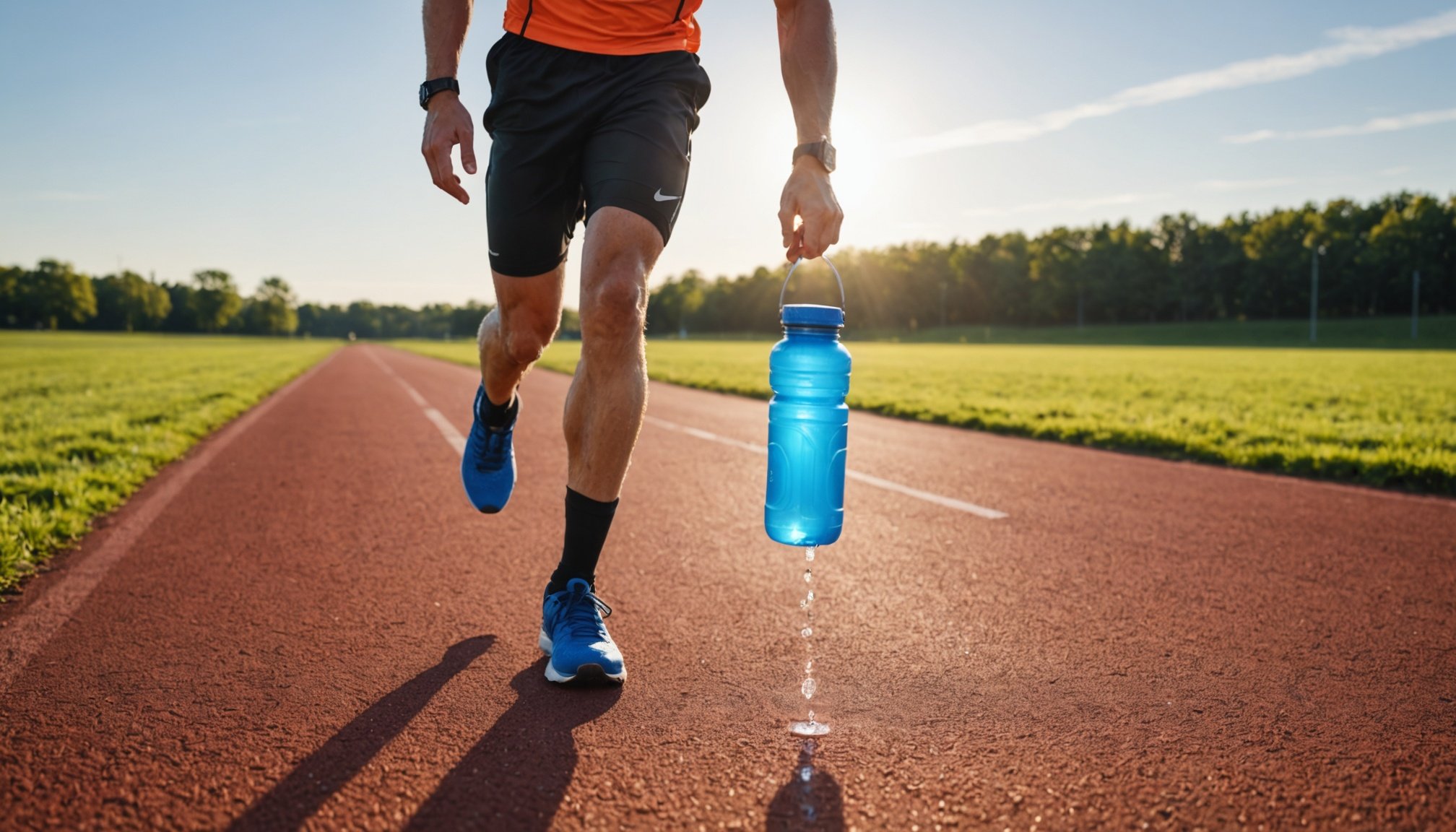In the realm of sports and athletic endeavors, maintaining optimal hydration levels is often the unsung hero behind peak performance and effective recovery. From casual gym-goers to seasoned athletes, understanding the intricate relationship between fluids and exercise can make a significant difference in your training outcomes. This article delves into the science of hydration and its pivotal role in supporting the body during physical exertion, ensuring you can achieve your best in every sports venture.
The Science Behind Hydration and Performance
Hydration is more than just drinking water; it’s about maintaining a balance of fluids and electrolytes in the body to support physiological functions vital for athletes. When engaging in any form of exercise, your body temperature rises, leading to increased sweat production as a natural cooling mechanism. This sweat loss, however, comes at the cost of losing essential fluids and electrolytes, primarily sodium.
Also read : Unleashing velocity: essential breathing strategies for swimmers to reduce drag and enhance speed
The consequences of neglecting proper hydration during exercise can be severe, ranging from decreased performance to potential dehydration. Dehydration doesn’t just affect your muscle function; it can impair focus, increase fatigue, and prolong recovery times.
To maintain performance, it’s crucial to understand your body’s unique fluid needs. This involves considering the intensity and duration of the exercise, environmental conditions such as heat, and individual sweat rates. By tailoring hydration strategies to these factors, you can support your body’s nutritional needs, ensuring sustained performance.
Also to read : Mastering Long-Distance Cycling: Top Pacing Strategies for Optimal Performance
The Impact of Dehydration on Athletes
While mild dehydration might seem inconsequential, its impact on an athlete’s performance can be profound. A mere 2% loss of body mass through sweat can lead to noticeable declines in performance. This is due to the body’s reduced ability to regulate temperature, increased heart rate, and diminished muscle endurance.
When athletes push their limits in hot and humid conditions without proper fluid replacement, they risk severe dehydration. Signs to watch for include dark urine, dizziness, and excessive fatigue. If not addressed, this can escalate into heat-related illnesses, jeopardizing your safety and training progress.
To mitigate such risks, it’s essential to establish a hydration plan tailored to your sports activities. This includes pre-hydration strategies, sipping fluids regularly during workouts, and incorporating electrolyte-rich drinks post-exercise for effective rehydration.
Strategies for Optimal Hydration
Achieving the right balance for hydration requires more than just drinking when thirsty. Proactive strategies can enhance your performance and speed up recovery. Here are some targeted approaches to maintain optimal hydration:
- Pre-Hydration: Consume fluids 2-3 hours before exercise to ensure your body starts in a well-hydrated state.
- Monitor Sweat Loss: Calculate your sweat rate by weighing yourself before and after exercise. This will help determine how much fluid you need to replace.
- Hydration During Exercise: Aim to consume 150-300ml of fluids every 15-20 minutes during exercise. Adjust this based on your sweat rate and environmental conditions.
- Post-Exercise Rehydration: Focus on replenishing both fluids and electrolytes lost during sweating. Sodium-rich drinks can expedite rehydration.
- Listen to Your Body: Your urine color can be a practical indicator of hydration status—light yellow is ideal. Feeling thirsty is a sign that you’re already getting dehydrated.
The Role of Hydration in Recovery
Post-exercise hydration plays a significant role in recovery. The process of rehydrating helps restore fluid balance, supports muscle repair, and replenishes glycogen stores. After intense training, the body is in a state of heightened physiological demand, making it crucial to focus on nutrition and hydration simultaneously.
Integrating fluids with carbohydrates and protein post-workout can enhance muscle recovery and growth. Sports drinks** designed for rehydration often contain the necessary components to facilitate this process effectively.
Moreover, hydration influences the immune system. Proper rehydration aids in flushing out toxins, reducing inflammation, and supporting overall health, enabling you to train consistently and effectively.
In conclusion, understanding and implementing a comprehensive hydration strategy is indispensable for any athlete. Ensuring that you maintain optimal fluid levels before, during, and after exercise can not only enhance performance but also accelerate recovery, ultimately supporting your athletic pursuits.
Hydration is undeniably a cornerstone of athletic performance and effective recovery. The intricate balance of water, electrolytes, and nutrition is pivotal in supporting your body‘s needs during exercise. By prioritizing hydration, you can enhance your sports performance, minimize the risk of dehydration, and recover more efficiently. As you continue your athletic journey, let hydration be the foundation of your training regimen. Embrace the power of fluids and unlock new levels of performance with every stride, jump, and lift.











